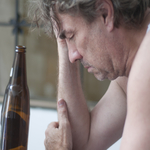
Those who have managed to acquire significant recovery time know that there are certain measures to be taken to aid one in making it through the holidays without a drink or drug. Staying close to your support network, going to 12-Step meetings and keeping your cell phone charged are a few of the ingredients for a safe and sober day of celebration. Naturally, avoiding risky people, places and things that could jeopardize your sobriety and clean time is always advised—especially for those who are in early recovery.
While we fully grasp the difficulty of maintaining your recovery over the holidays, we also regretfully know that many people did in fact relapse over the Fourth of July weekend.
Honest Relapse
Experiencing a relapse is an upsetting event, one that brings about a number of painful feelings. Shame and guilt typically go hand-in-hand with a relapse. One cannot help but feel as though they have not only let themselves down—but also their friends, family and recovery peers. While as natural as those feelings may be, shame and guilt can be a slippery slope manifesting into trying to maintain a lie.
Every person who found recovery in the rooms of Alcoholics Anonymous (AA) or Narcotics Anonymous (NA) is aware of what it felt like to identify as a newcomer in front of a number of people who have more time in recovery than you. You meet people who have several years of clean and/or sober time, and wonder if you will ever be able to accomplish such a feat. After 29 days of identifying as a newcomer, it is likely that you said to yourself—never again.
It is quite common for people who relapse to not tell their recovery peers about a relapse, but still continue to go to meetings as if nothing had happened. Failing to humble yourself and be honest about what happened will eventually begin to weigh on you, a burden that usually leads to more drinking and/or drugging. The sooner you are honest with yourself and those within your recovery circle, the better off you will be. Please do not let a relapse lead to full on active use on account of your pride. Remember the stakes of addiction are ever so high—the difference between life or death.
Rejoining the Circle of Recovery
If you did in fact relapse and have not yet called your sponsor, please do so immediately. If you don’t have a sponsor, get yourself to a meeting and raise your hand when asked if there are any newcomers in the room. Walk up to get a newcomer chip and a hug, so you can reboot your recovery. Such a humbling experience can be the catalyst for a new journey, one where you learn from your past so that you can have a future free from drugs and alcohol; all while in the company of meaningful friends and peers who share the same goal.
Relapse may be a part of your story, but not as mark of shame but rather a reminder of how fleeting your recovery will be if you let down your guard. Eternal vigilance is required to protect against your addiction that is waiting for you to become vulnerable. You are not alone, recovery is an individual goal, that can only be accomplished collectively. Your relapse, while unfortunate, can serve to strengthen your volition.


